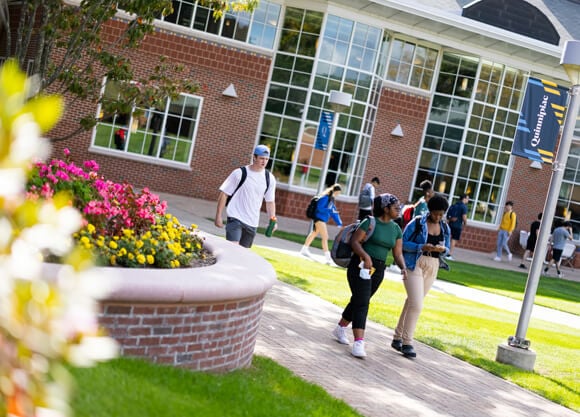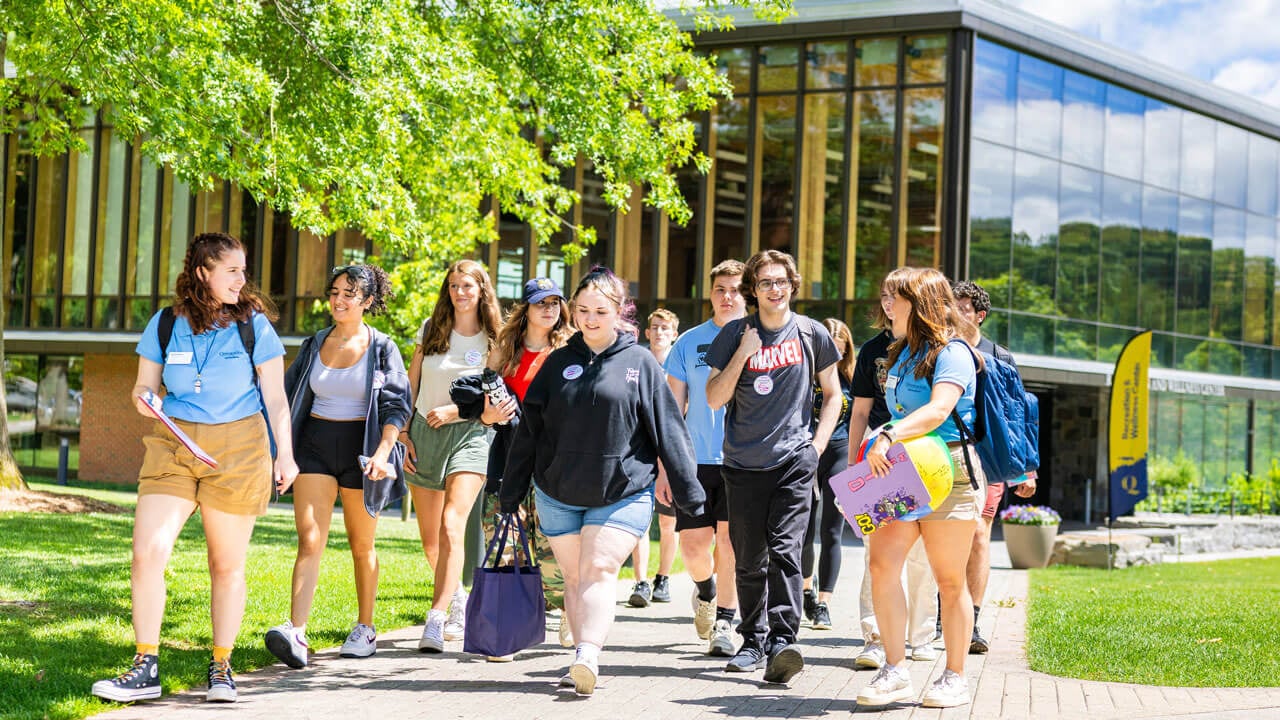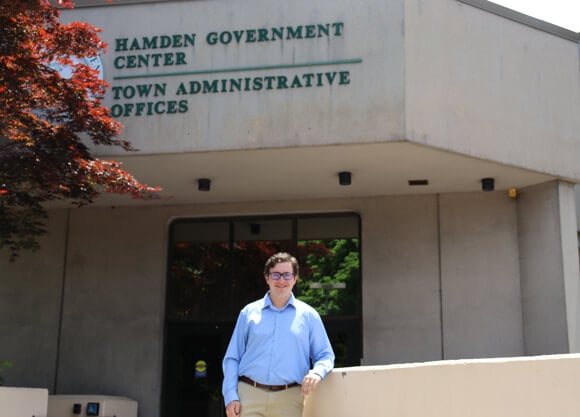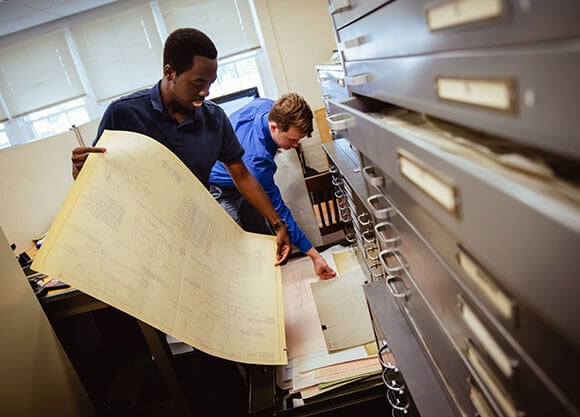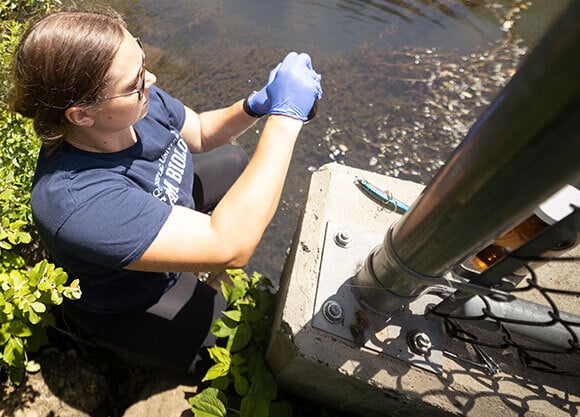
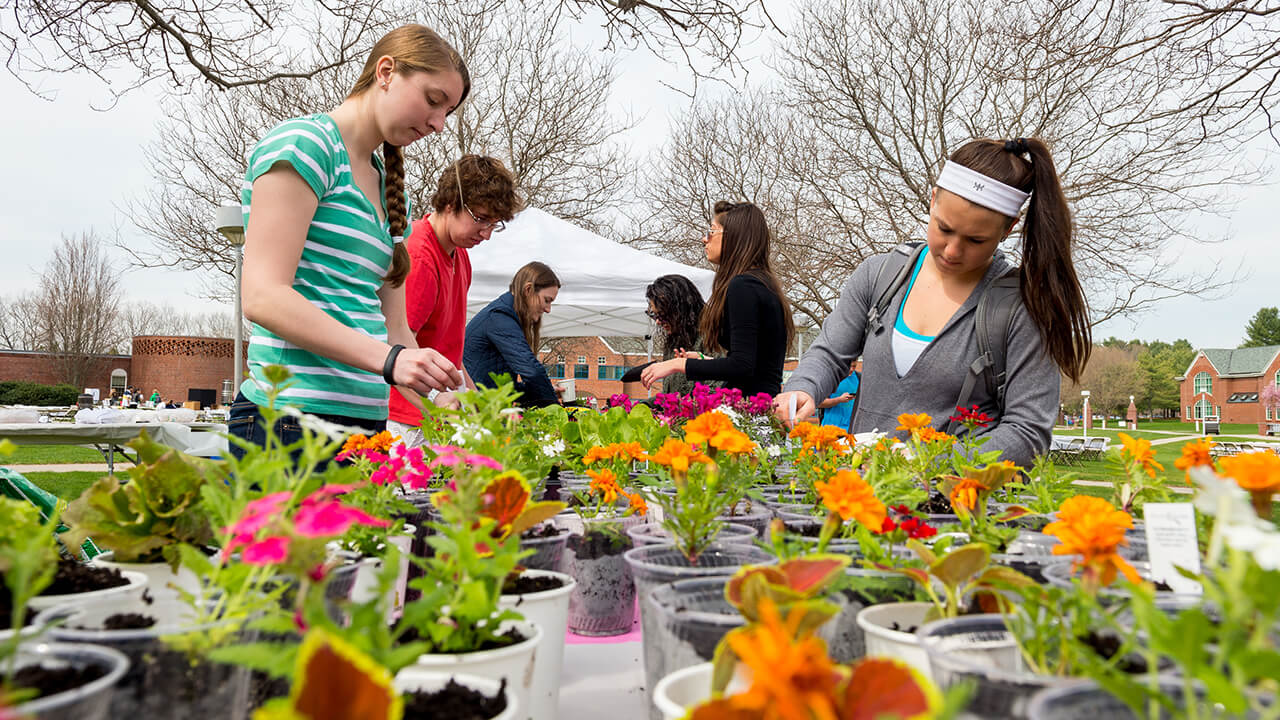
Executive board member Anya Grondalski explained why Earth Week is a significant event for the Quinnipiac community.
“The first Earth Day in 1970 marked the beginning of the modern eco-movement. Setting aside a week to celebrate our planet, dedicate time and effort to education, all while having fun is important. The climate crisis is often a fear-inducing reality that causes many people extreme anxiety and hopelessness,” said Grondalski. “Our goal at Students for Environmental Action is to make sure those people in our Quinnipiac community have a safe space to feel good about the steps being taken to heal our home.”
The wide range of events includes hikes up Sleeping Giant, trivia, yoga, a fashion show, bingo, food trucks, an Earth Day fair, speakers discussing topics like climate change and sustainability and Instagram photo contests. The events are aimed at providing students with a week of unity and education, Grondalski said.
“Students can expect to have fun while also learning a lot. Earth Week is meant to be whatever you want it to be, and there are a lot of ways to cater your experience to be something more peaceful and meditative or exciting and busy,” said Grondalski.
Jack Schwartz, who also serves on the Students for Environmental Action executive board, said the events planned also have educational elements.
“Students will learn what they can do to mitigate their negative affect on others and ways they can advocate for others to act the same,” said Schwartz.
While Earth Week is a great experience to celebrate the earth in a fun an educational way, Grondalski said that everyone can show their appreciation for the environment on a daily basis.
“Be conscientious of your diet by buying from local farms, composting food waste, cooking as much as you can and reducing your meat, fish and dairy consumption,” said Grondalski. “Reuse when you can and reduce purchasing unnecessary plastics when possible, have a personal garden at home, clean up trash when you see it and try to buy organic and non-toxic products when possible to help keep our waterways and soil clean.”
Stay in the Loop
Quinnipiac Today is your source for what's happening throughout #BobcatNation. Sign up for our weekly email newsletter to be among the first to know about news, events and members of our Bobcat family who are making a positive difference in our world.
Sign Up Now